Let’s be real, the Quarter Arcade Taito Bubble Bobble is practically made for retro gaming nerds like me. I’m a sucker for the whole “Honey, I shrunk your console,” vibe in general, but Numbskull’s playable mini arcade cabinet is far from being just a novelty. In fact, it proves that hardware can serve as both gorgeous decor and a completely playable device simultaneously, which is impressive given its absurdly tiny controls.
Priced at $249.99 / £219.99, the Quarter Arcade Taito Bubble Bobble machine’s price isn’t for the faint of heart. By that, I mean you have to be really into the idea of having a micro arcade cabinet to pay this amount, and even then, its MSRP is a bit lofty. Before getting my hands on the tiny time capsule, I wasn’t convinced I’d want to pay over $200 for a system that can only run one game. However, through clever design and tremendous quality, the unit actually nails its objective of somehow feeling exactly like the real deal.
There’s certainly a conversation to be had on whether Quarter Arcade machines are proper gaming systems. They skirt the line between collectible game room display pieces and playable retro consoles, which in turn affects how you view their illustrious price tags. Would I recommend this Bubble Bobble machine over something like the Evercade Alpha? Not if you’re looking for a proper sit-down retro gaming session, but it rocks if you want a playable conversation starter in your space that’ll suck you in with gorgeous sounds and visuals.
Design
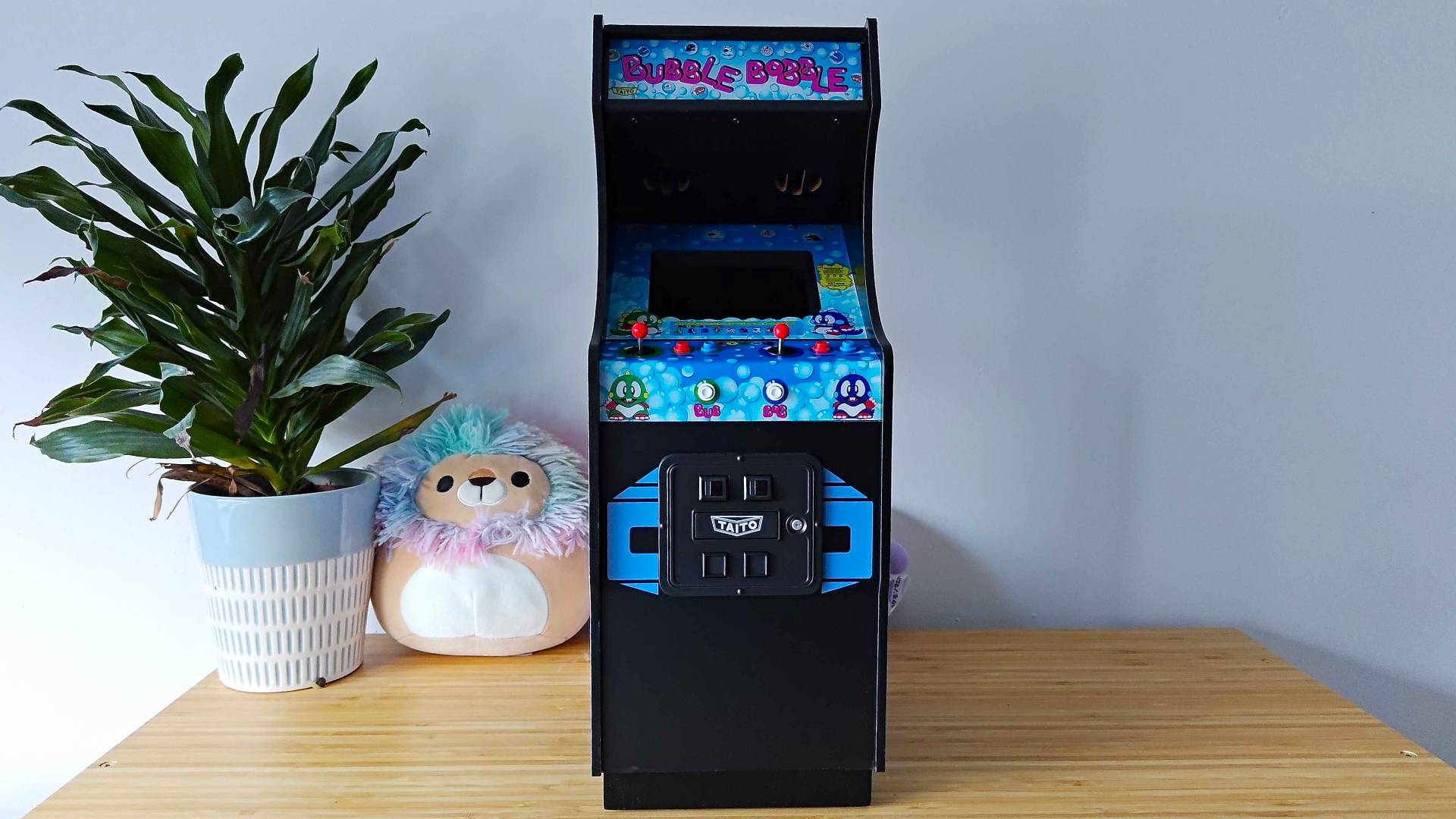
Made almost completely out of wood, the Quarter Arcade Taito Bubble Bobble machine couldn’t look more like the original arcade cabinet. I’m pretty sure if I took a Leaning Tower of Pisa-style picture leaning against it like Fonz, I could trick some of you into thinking it was full size. Naturally, it isn’t, instead it uses a 1/4 scale design, measuring in at just 17 inches tall and 6.5 inches wide.
Despite its size, you’ll still be able to treat your eyes to tremendous decal details if you squint hard enough. It’s actually more detailed than some of the OG cabinets I’ve come across, featuring a bezel with instructional artwork and Bubble Bobble’s Bub and Bob on the front panel. The Taito-themed blue and black sides provide a nice visual break from the busy screen area, with the whole getup feeling very much like a typical machine from the ‘80s.
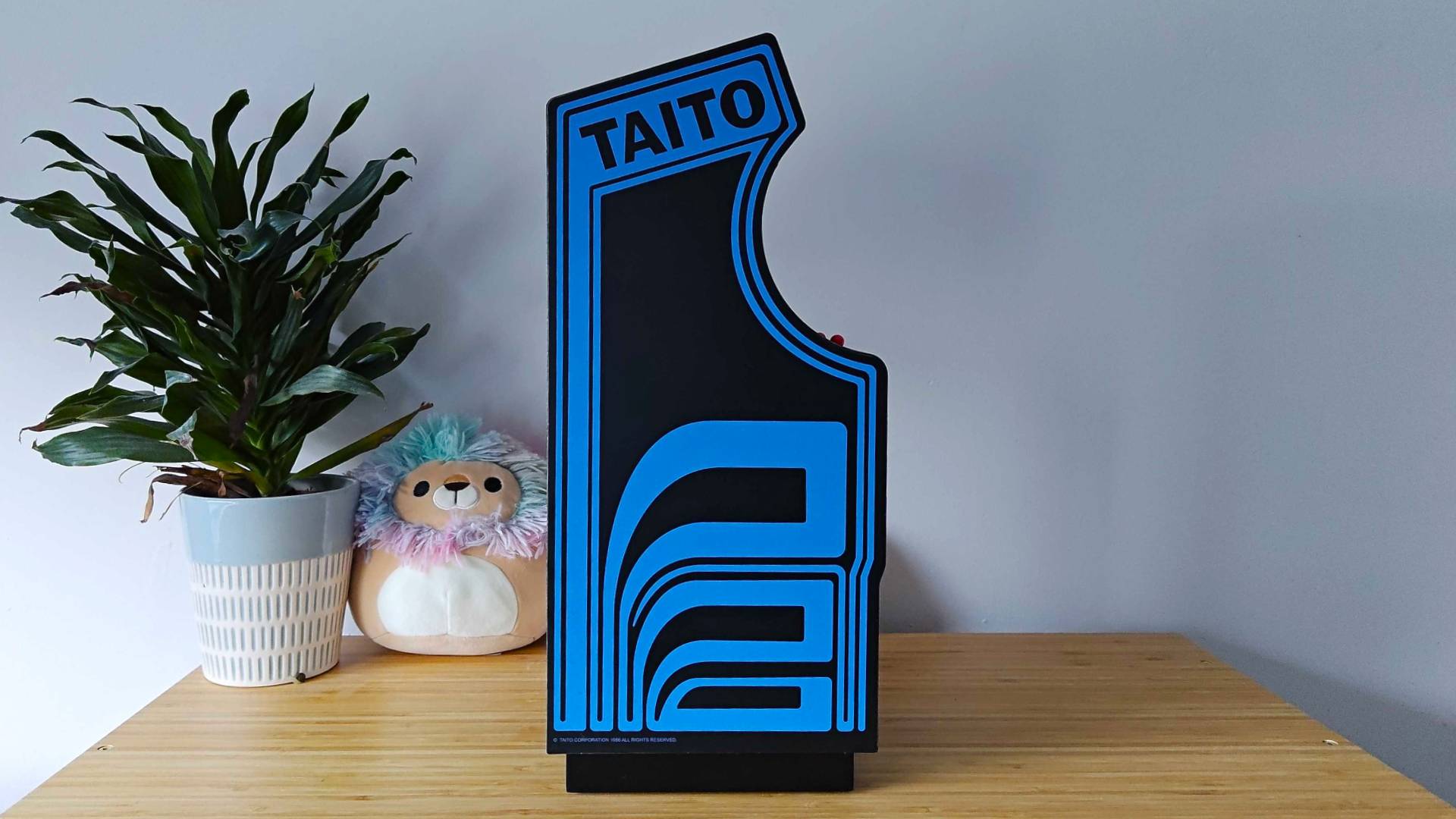
I’ll get onto how the buttons and sticks actually feel, but from a visual perspective, they’re practically perfect. The joysticks even have tiny dust covers included to drive home the authentic feel, while the buttons look just right thanks to their height, concave top, and vibrant blue and red plastic. The fact you’re also getting two sets of controls for multiplayer action is a bit bananas, and again, helps the machine still feel like an accurate replica in spite of its size.
Down the bottom of this machine, you’ll find extra buttons where the coin slots live. Rather than simply adding a simplistic reference to the old payment method through molding, the slots instead serve their original use as illuminated red buttons, allowing you to feed the machine visual coins (and probably upset your virtual parents.) The cherry on top of the whole cabinet, however, is the illuminated marquee, which provides a warm glow that breathes life into the machine. I’ve messed around with a few arcade lighting setups in my time, and this banner nails the fluorescent look.
Features
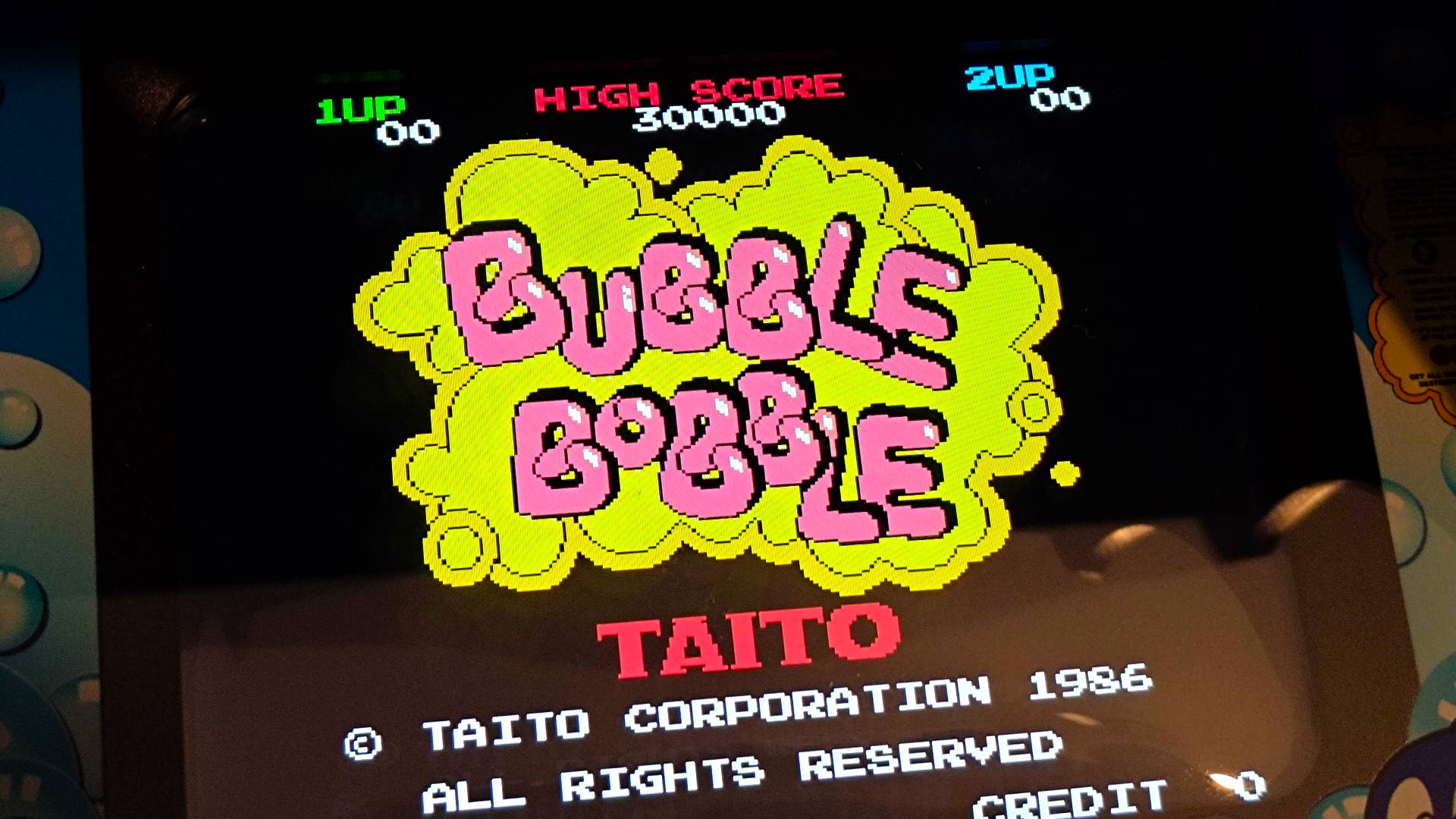
Armed with a five-inch TFT screen, the display sits recessed under a perspex cover in a move to replicate an old CRT. It certainly manages to pull that off, although I’m surprised that the visuals lack scanlines. This is likely to ensure the screen is still bright enough, and at this sort of size, overlays aren’t required for extra sharpness. The viewing angles are slightly less impressive than IPS displays due to the panel tech used here, but again, the size and layout mean that’s not a biggie.
Onto sound, and the Quarter Arcade Taito Bubble Bobble’s 3W speakers are surprisingly punchy. I feel like their placement gives them a huge boost since they’re angled down from the inside lip, with the wood body helping make everything sound warm and bassy. Had Numbskull shoved the speakers at the back or sides, I think the whole effect would have been drastically different, so I’m glad they’re on the ball.
One of the Quarter Arcade’s more surprising features is the inclusion of a built-in lithium battery. Perhaps that means the machine can technically serve as a gaming handheld, albeit one you’d have to hold like a Djembe drum. Silliness aside, its inclusion is ridiculously handy, as it means the system is ready to go without having to fetch its USB-C power adapter or keep it in a set spot. Simply put, you can become that guy at house parties who whips out a guitar for some Wonder Wall, only you’ll have a cool battery-operated arcade machine to show everyone (the Gallagher brothers could only dream of writing the Bubble Bobble theme.)
Performance
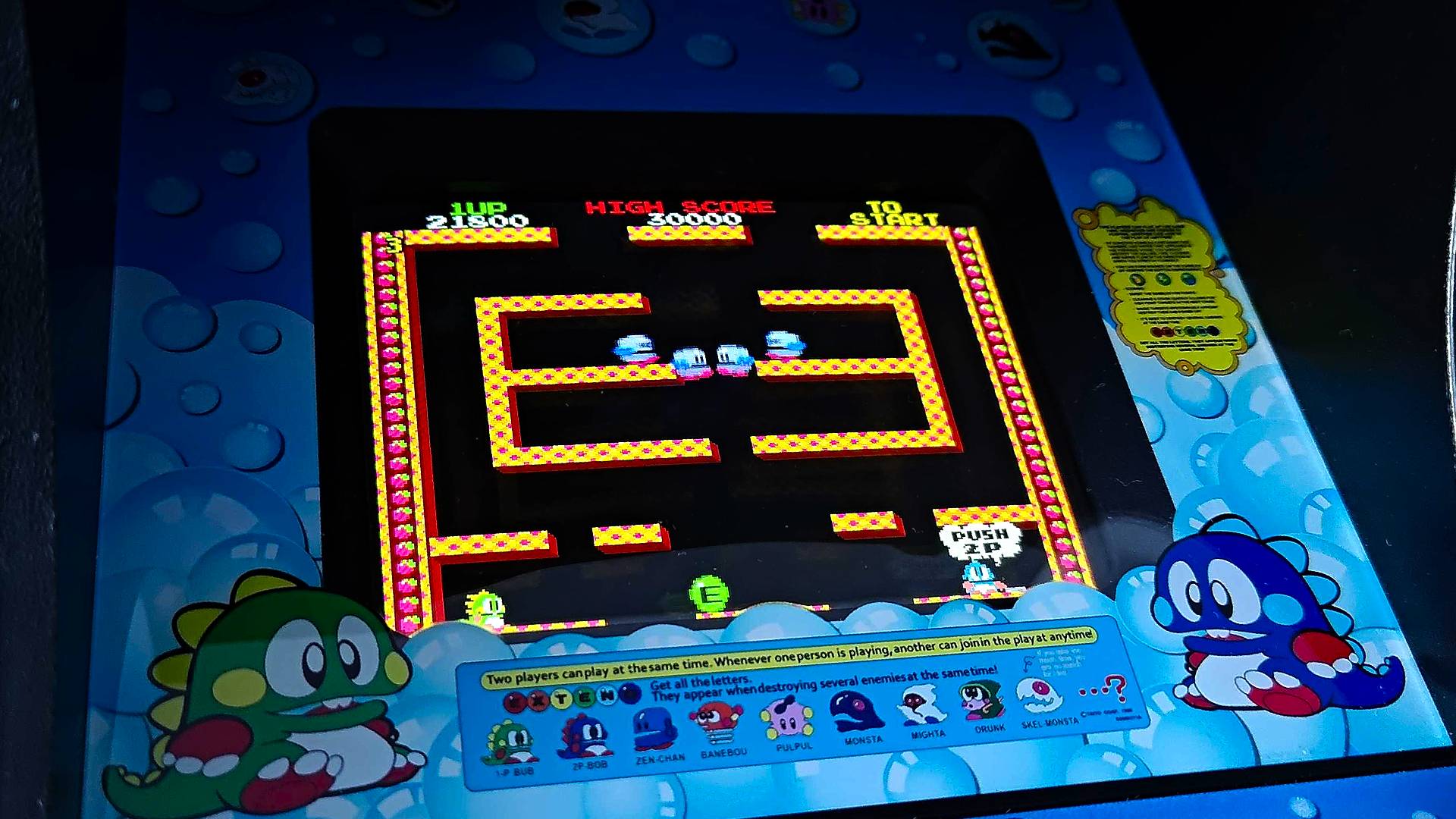
Just like most modern arcade machines, Quarter Arcades use emulation to provide access to the classics. In this case, we’re looking at a custom setup that requires no intervention, but firmware updates are available when the need arises. Sadly, you can’t mess around with the emulator it’s using and fire up your own ROMs, but that’s typical when it comes to officially licensed products.
So, since we can play any game we like as long as it’s Bubble Bobble, I’ll focus on some of the performance insights for the old arcade romp. Visuals, sounds, and responsiveness are all pretty much identical to the original, and the TFT screen is superbly vibrant. I’m actually surprised just how much contrast the screen is able to provide seeing as it’s not OLED or anything like that, and the recessed setup does its utmost to look like a CRT.
Before acquainting my thumbs with Quarter Arcade microscopic buttons and sticks, I was slightly nervous that they’d be borderline unusable. I’ve also come across plenty of novelty arcade machines in my time with similar-sized inputs, and none of them felt remotely high quality. Thankfully, my preconceptions couldn’t have been more wrong, and everything about these controls feels like the real thing, but tiny.
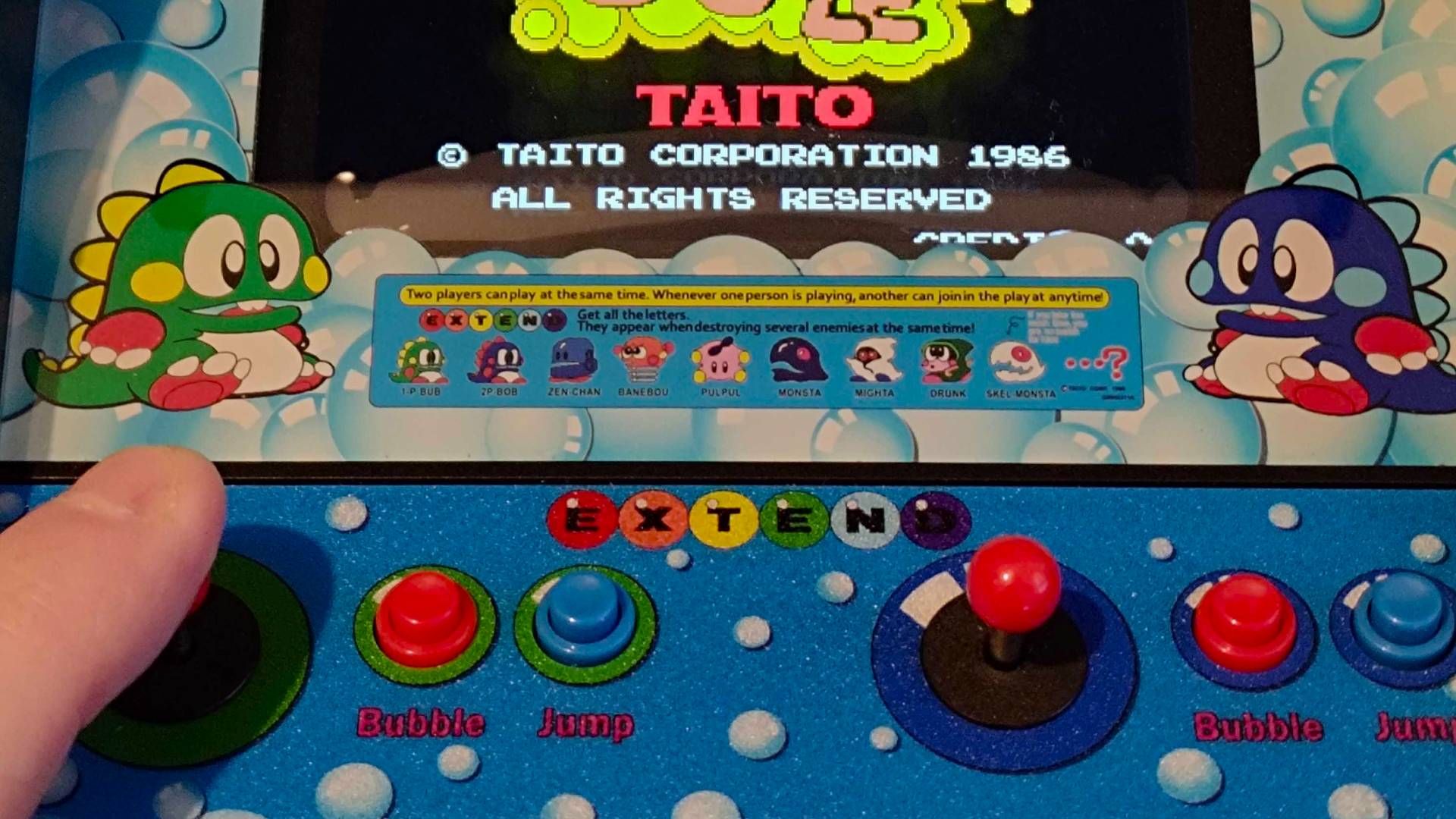
Naturally, you’re not getting anything close to Sanwa switches here, but both the buttons and sticks are exceptionally clicky. The joysticks in particular have defined cross gates that provide a nice degree of arcade accuracy, and the buttons have travel that feels just right. You’d think you’d need Barbie hands to use either, yet your thumbs will fare just fine.
I managed to get a few games of Bubble Bobble in with my partner over the holidays to see how multiplayer holds up. I figured we’d be fighting for space on the control deck, but we managed to get by without any arguments. Naturally, everything about this setup is squished, but I’d argue that’s all part of the novelty. This is very much a device for quick bursts rather than long sessions, and there’s nothing wrong with that.
Should you buy the QQuarter Arcade Taito Bubble Bobble?
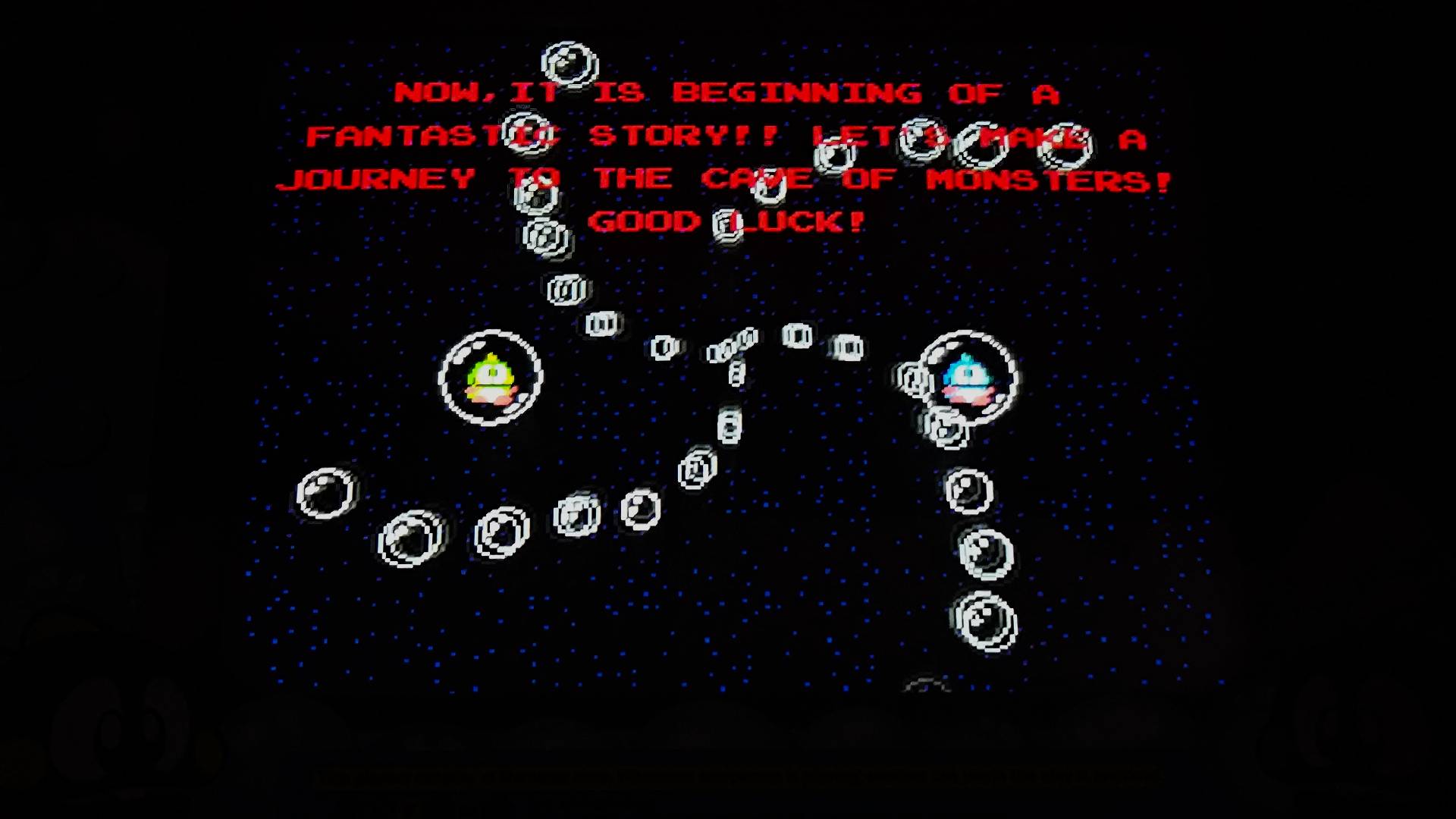
As a modern arcade solution, the Quarter Arcade Taito Bubble Bobble machine packs a surprising punch. If you’re simply looking for a way to play the classic ‘80s platformer, there are a million cheaper ways to do so. However, if it’s an eye-catching piece of visual brilliance you’re after for your game room, you won’t find anything quite like this cabinet out there.
The entire Quarter Arcade line-up is admittedly pricey, and it’s certainly one of those purchases that can be hard to justify given it boasts just one game. That said, I think solely focussing on that caveat risks missing the point of this collectible machine, and while financial guilt may keep you from splashing out $250 yourself, I think it’ll make an outstanding gift for retro fans looking for something special.
It’s safe to say I’m head over heels for this adorable mini arcade homage, and I reckon plenty of you will be too.
How I tested the Quarter Arcade Taito Bubble Bobble
For a month, I used the Quarter Arcade Taito Bubble Bobble arcade machine at my desk in both single-player and multiplayer. During that time, I carefully assessed the machine’s build quality, controls, and screen as well as compared emulation results against other ports and releases. I also repeatedly ran through the game to check for any glitches or bugs and installed firmware updates as they became available.
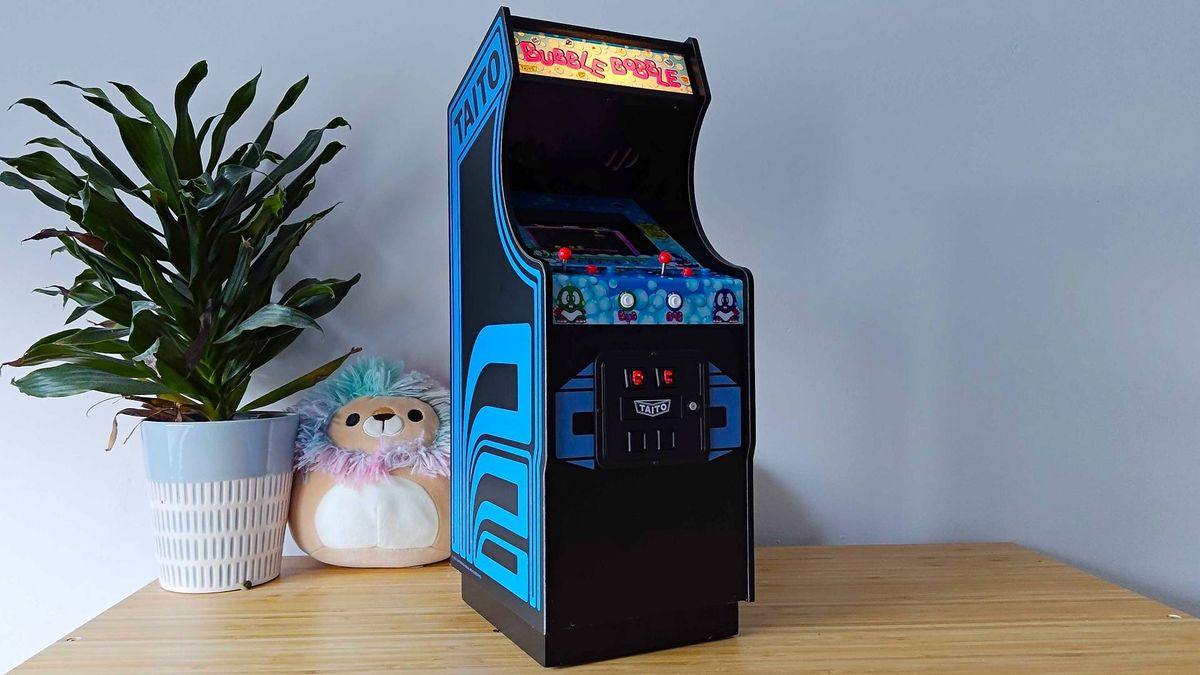
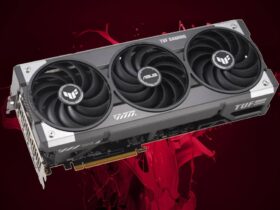
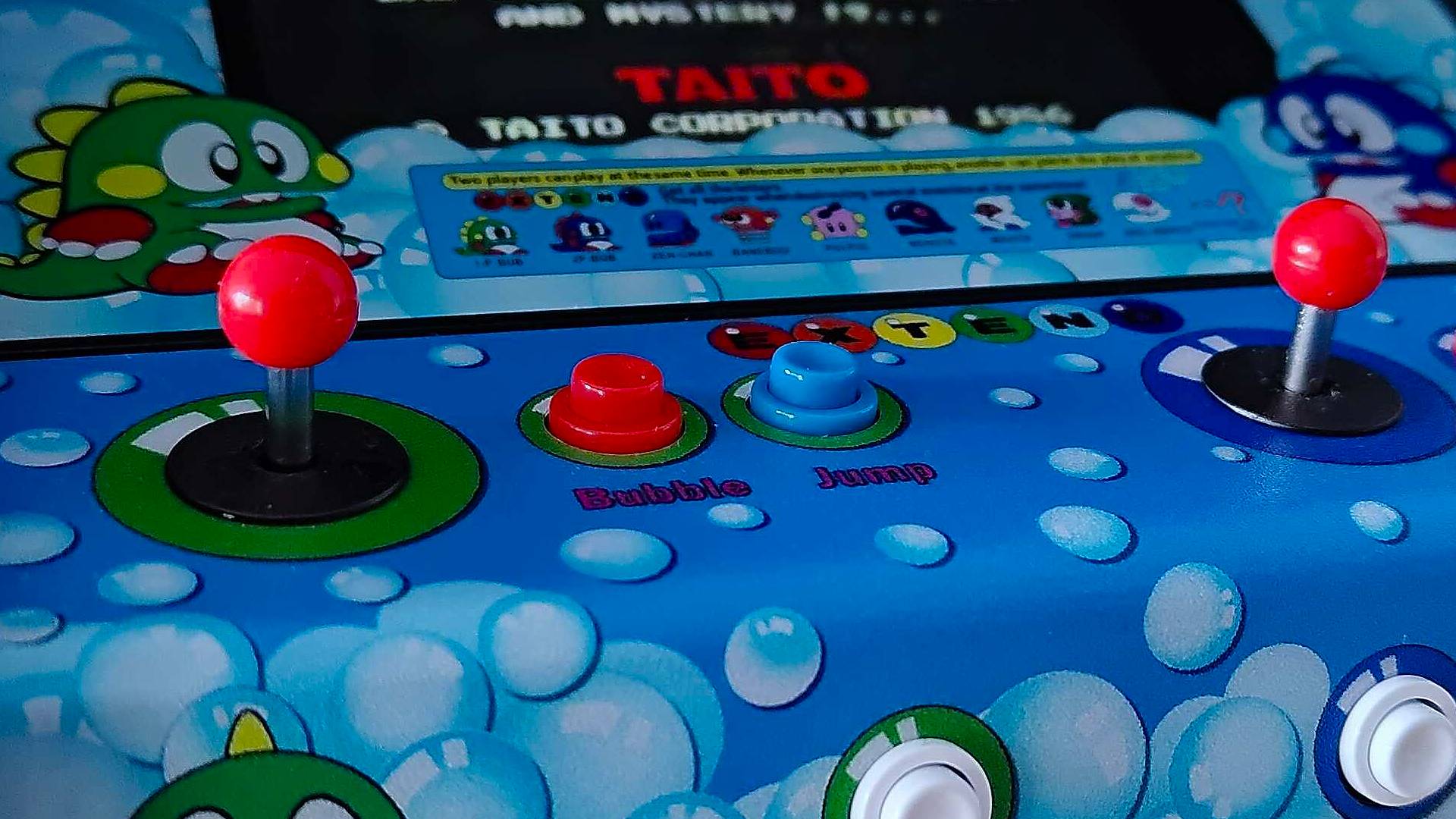
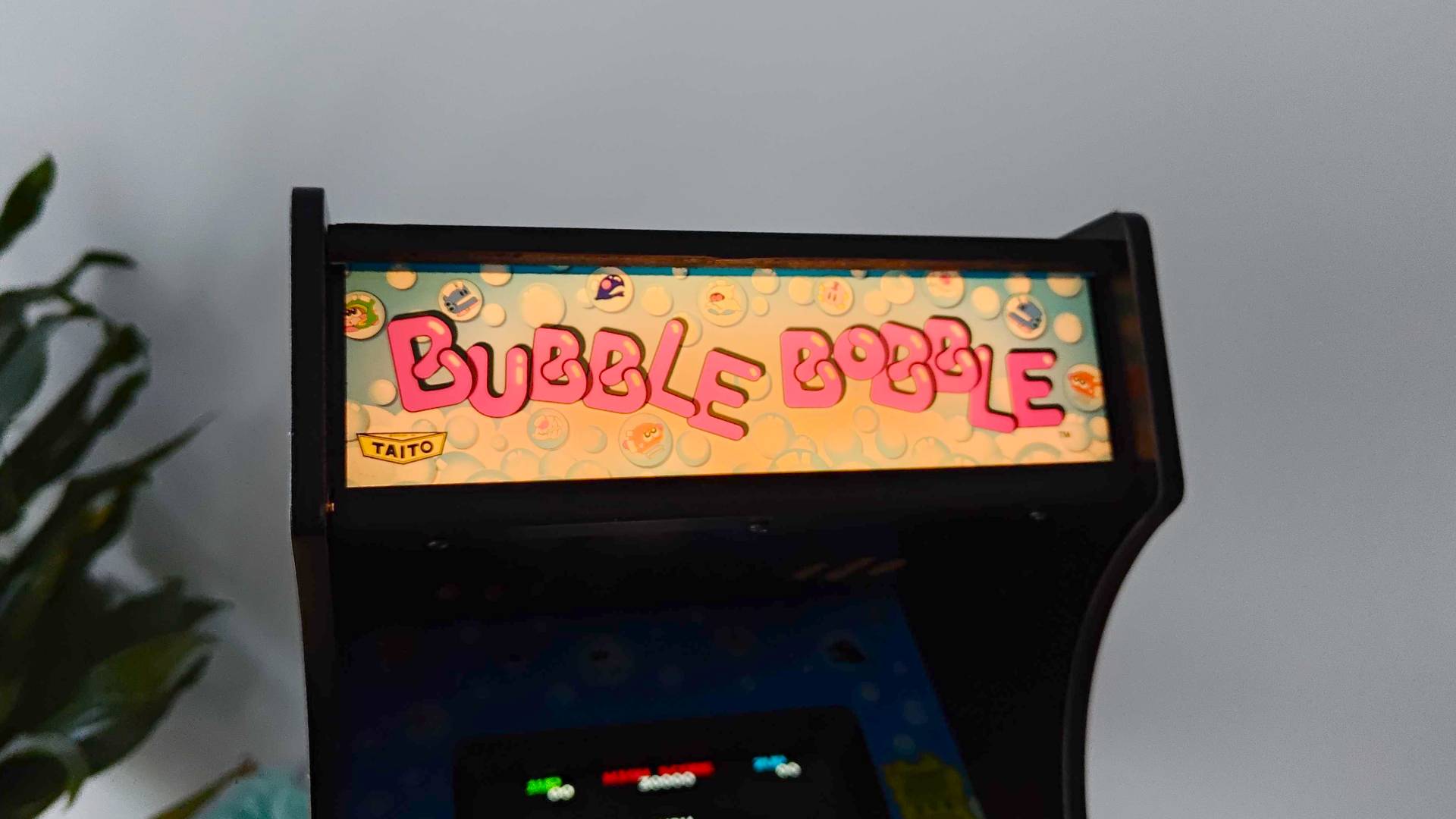
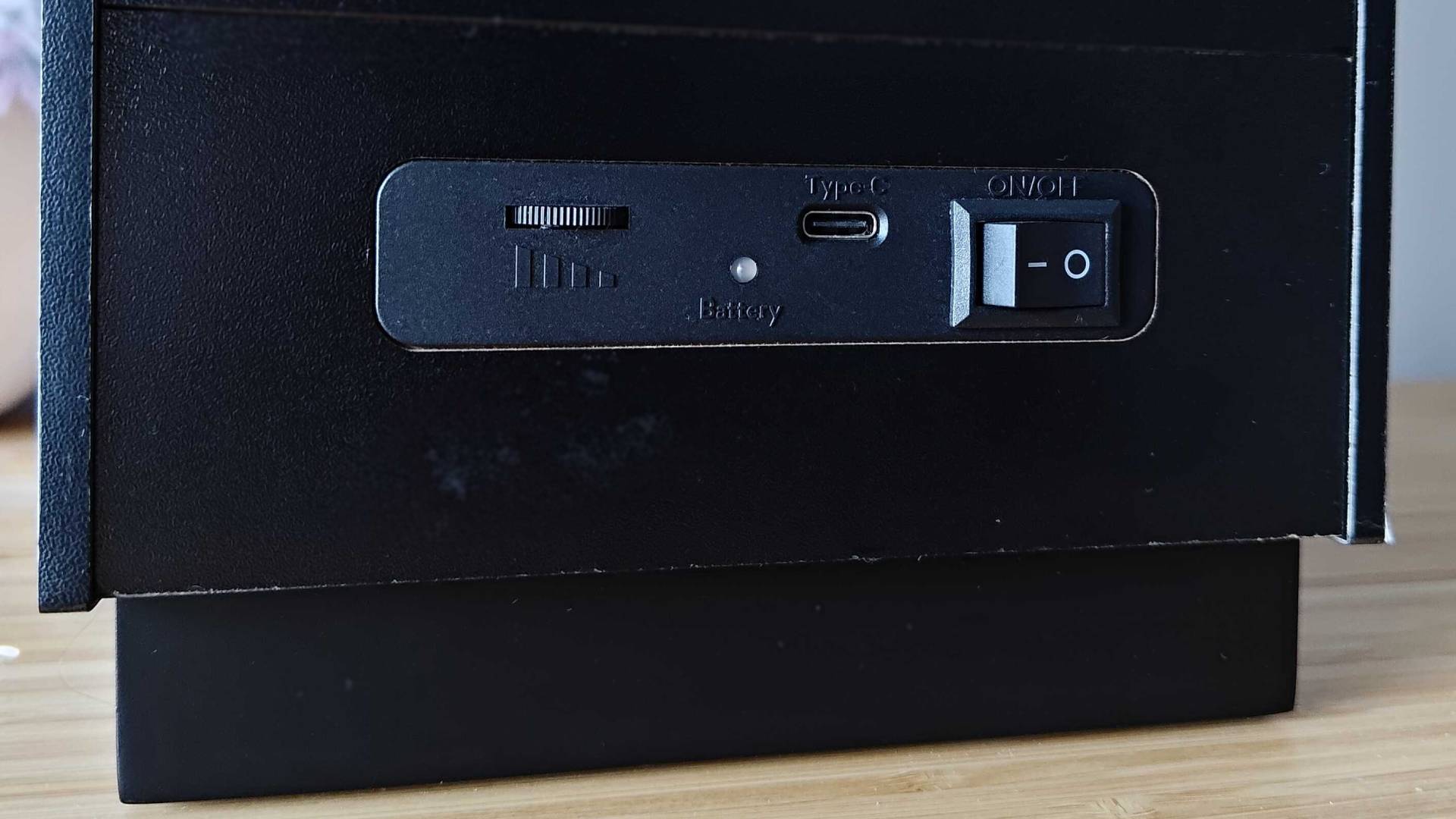

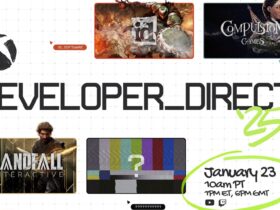



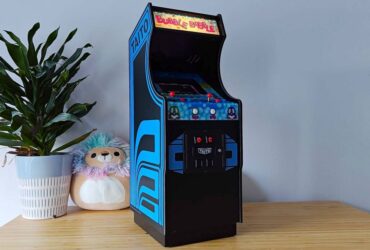
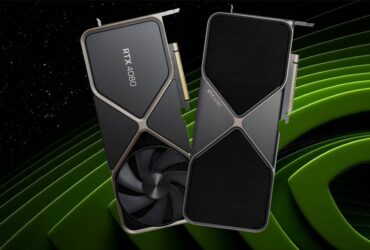
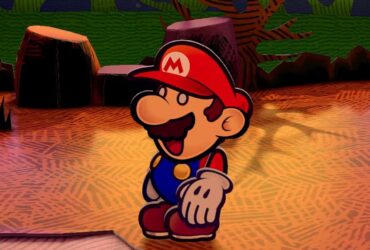
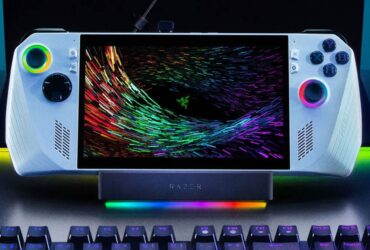
Leave a Reply